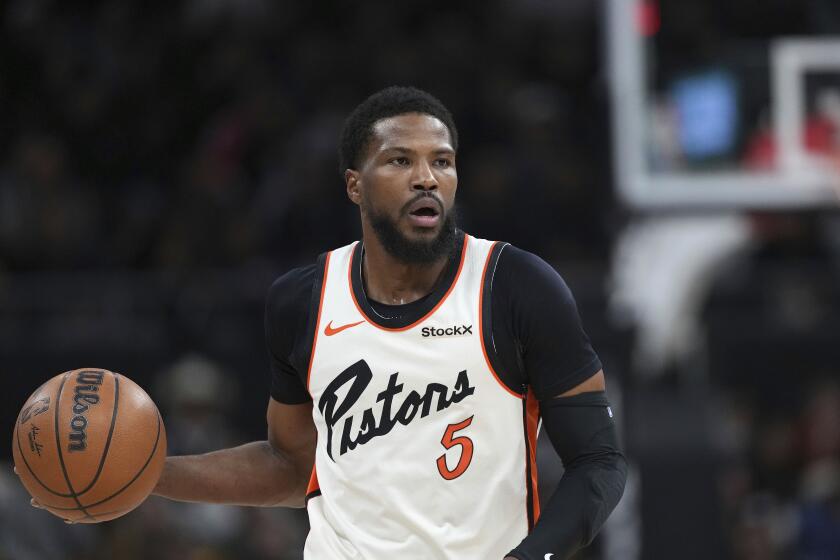Veteran NBA player Malik Beasley is under federal investigation relating to gambling allegations in connection to league games, according to multiple media reports.
According to ESPN, which was first to report the investigation, the allegations are from the 2023-24 season when Beasley played for the Milwaukee Bucks. ESPN cited a gambling industry source who said that at least one prominent U.S. sportsbook noticed unusually heavy betting interest on Beasley’s statistics starting around January 2024.
“There have been no charges against Malik,” Beasley’s attorney, Steve Haney, told the Associated Press. “It’s just an investigation at this point. We hope people reserve judgment until he’s charged — or if he’s charged. It’s not uncommon for there to be a federal investigation.”
Haney told ABC News that he understands that the U.S. Attorney’s Office in the Eastern District of New York is leading the investigation. A spokesperson for that office declined to comment for this story.
Read more: LeBron James exercises $52.6-million option and will be first to play 23 NBA seasons
On Sunday, NBA spokesman Mike Bass said in a statement that the league is “cooperating with the federal prosecutors’ investigation” into Beasley.
Beasley has played for six teams during his nine-year NBA career, including a stint with the Lakers during the 2022-23 season. He played for the Detroit Pistons last season, averaging 16.3 points a game and setting a franchise record by making 319 three-point shots during the regular season.
In April 2024, the NBA banned then-Toronto Raptors player Jontay Porter after finding that he had violated numerous league rules in relation to sports betting, including limiting his participation in one or more games and disclosing confidential information to bettors. Porter eventually pleaded guilty in federal court to conspiracy to commit wire fraud and has yet to be sentenced.
Get the best, most interesting and strangest stories of the day from the L.A. sports scene and beyond from our newsletter The Sports Report.
This story originally appeared in Los Angeles Times.
Read the full article here

